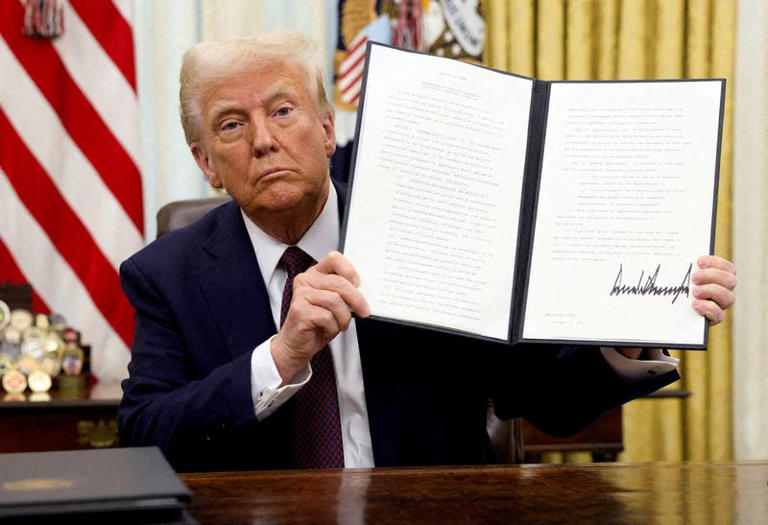On Thursday, U.S. President Donald Trump signed into law a bipartisan bill repealing an Internal Revenue Service (IRS) rule that expanded the definition of “broker” to include decentralized finance (DeFi) platforms and cryptocurrency wallets. This marks the first crypto-focused legislation signed by Trump during his presidency and signals a significant shift in regulatory approaches toward digital assets.
Background on the IRS Rule
The now-repealed IRS regulation, finalized in late 2024 during the Biden administration, required DeFi platforms, non-custodial wallets, and other decentralized crypto services to report transaction data and collect customer information under the “Gross Proceeds Reporting by Brokers” framework.
The rule addressed tax compliance among cryptocurrency users but faced widespread criticism for being impractical and overly burdensome for DeFi platforms, which do not act as intermediaries or have access to user identities.
Under this framework, popular crypto tools like MetaMask and Uniswap’s front-end interfaces would have been classified as brokers, obligating them to gather extensive taxpayer data. Critics argued that the rule infringed on user privacy, stifled innovation, and overwhelmed the IRS with unnecessary filings it was ill-equipped to handle.
Legislative Process and Repeal
The bill, formally known as H.J. Res.25, was introduced by Representative Mike Carey (R-Ohio) and Senator Ted Cruz (R-Texas). It passed both chambers of Congress in March 2025 under the Congressional Review Act (CRA), which enables lawmakers to overturn federal regulations with a simple majority vote. The CRA also prevents future administrations from issuing similar rules without congressional approval.
The repeal reflects bipartisan concerns about the IRS rule’s impact on privacy, innovation, and compliance feasibility. Industry groups like the Blockchain Association had called for its reversal, emphasizing that DeFi platforms lack the infrastructure to comply with such mandates.
Implications of the Repeal
Trump’s signing of this legislation underscores his administration’s deregulatory stance and growing support for emerging technologies like cryptocurrency. The White House issued a statement backing the repeal, citing its alignment with American innovation goals and privacy protections.
The legislation ensures that DeFi platforms and other non-custodial crypto services are no longer required to report gross transaction proceeds or collect taxpayer data. This move is expected to foster growth in the U.S. crypto industry while safeguarding user privacy.
Industry Response
The cryptocurrency sector has welcomed the repeal as a victory for innovation and decentralization. Representative Carey stated that the rule had “needlessly hindered American innovation” and thanked Trump for signing the bill into law. The repeal also reaffirms Congress’s intent to protect decentralized technologies from overreaching regulations introduced under previous administrations.
This development marks a significant milestone in U.S. crypto policy, setting a precedent for future legislative approaches to digital assets and blockchain technology.





